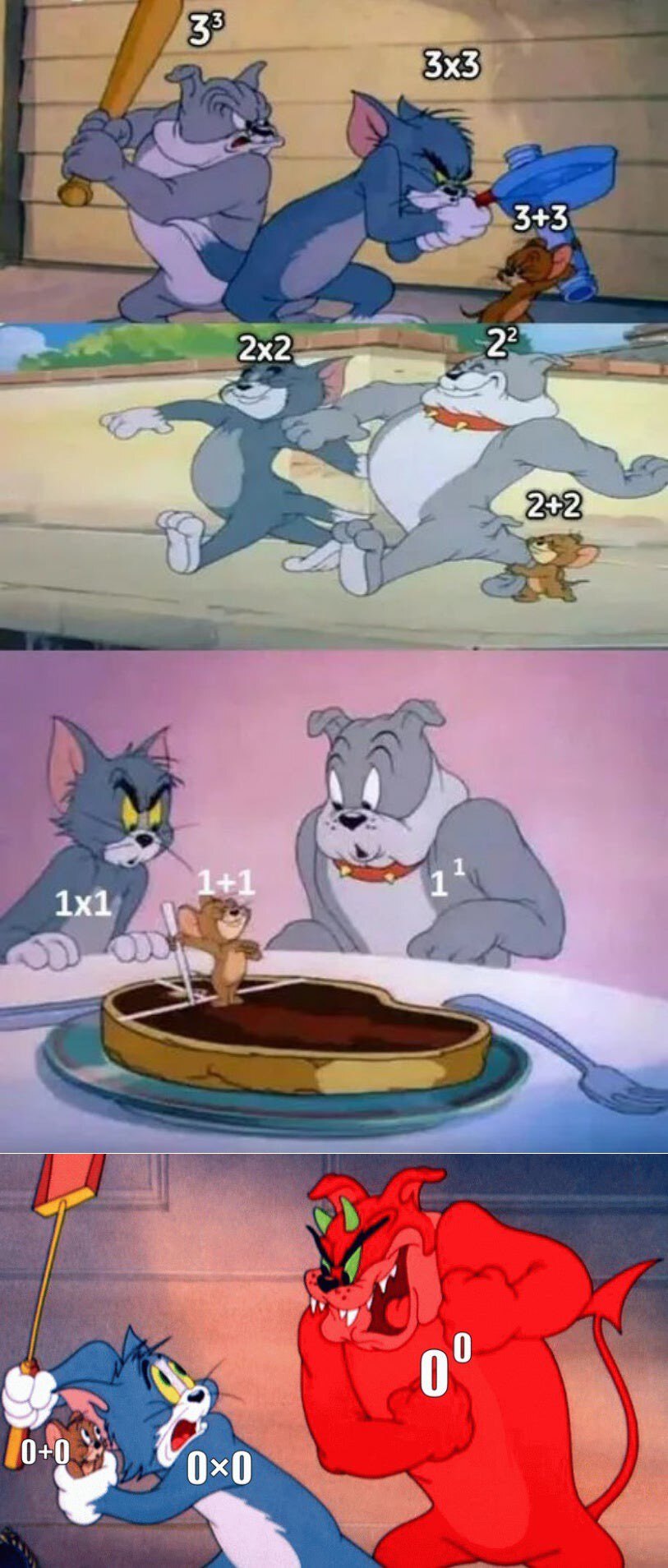I tried to post this a couple times. The original title I was using was "0! = 1" which... I don't know, lemmy just gave up trying to post it when I hit the submit button. No errors, just a spinning circle like it was thinking about it and going to post it eventually.
Kinda funny.
